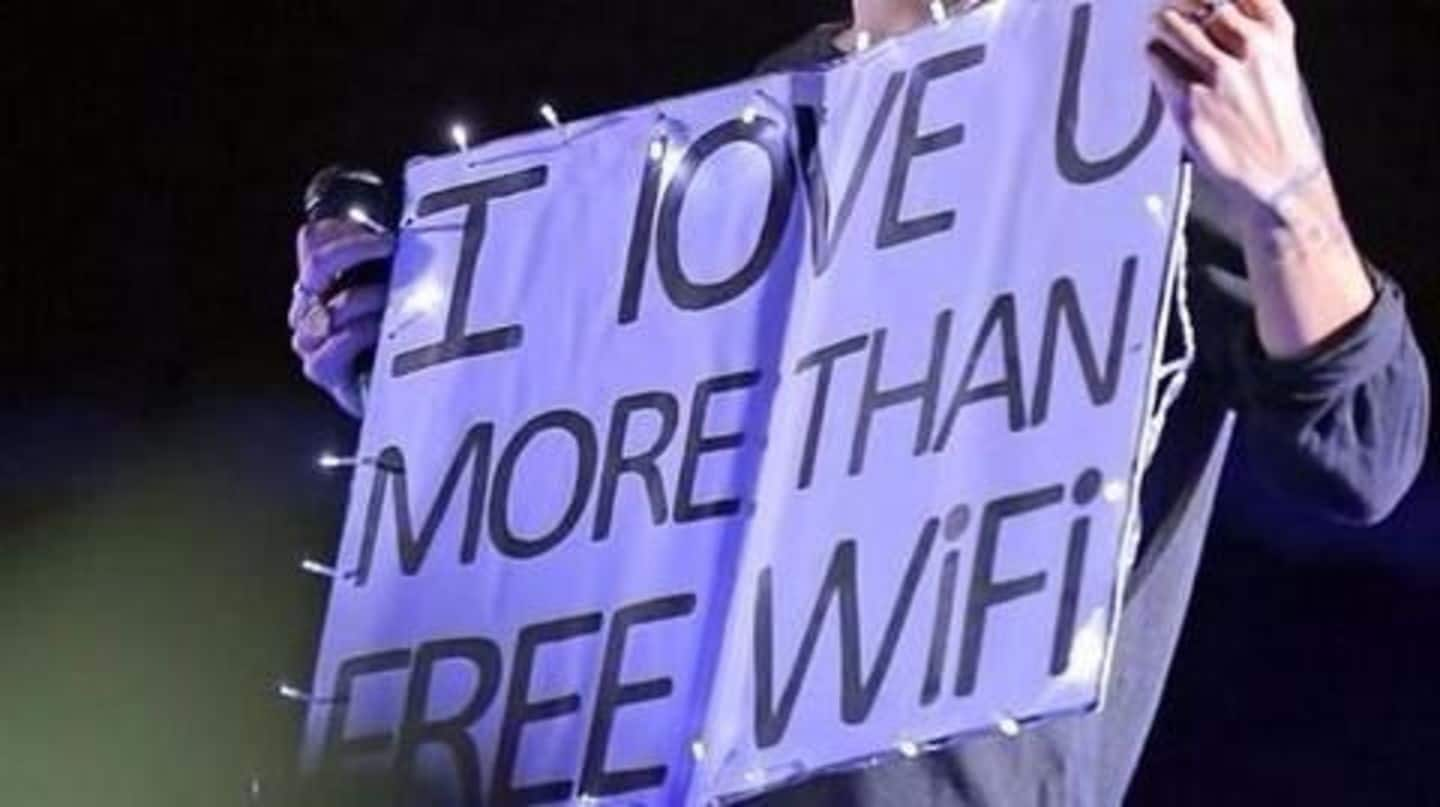
Happiness is free Wi-Fi! But would you risk personal data?
What's the story
What else could give us internet addicts more happiness than free Wi-Fi? Being so impatient to get connected on free internet networks, we hardly think twice before accessing them. But security firm Symantec's Norton says one should! It says free Wi-Fi hotspots are increasing in India, but not many know what an open connection means or if it's worth risking security and personal data.
Report
People take significant risks to hook on to free Wi-Fi
'Norton Wi-Fi Risk Report-2017' surveyed 15,532 mobile device users across 15 global markets, including India. It studied the behavior and attitudes of users while accessing public Wi-Fi. It revealed 87% of them had put their personal information, including photos and bank details, at risk for using free Wi-Fi. Norton disclosed the extent to which such networks are used and how they can compromise security.
Cybercrimes
96% Indians potentially put personal information at risk
Users think data is private on their devices, but cybercriminals could easily access it through compromised apps or Wi-Fi networks. 96% of the surveyed Indians checked bank accounts, social media profiles, and shared personal photos/videos on public Wi-Fi. This makes it easy for hackers to gain access to login IDs and passwords typed across sites; they can easily intercept data transmitted on public networks.
India
73% Indians ready to exchange personal details for Wi-Fi
The report found 73% of Indians agreed to swap personal information for strong Wi-Fi connection. 35% accepted to watch three-minute advertisements, 22% allowed access to photographs, and 19% gave permission to access and edit their social media profiles. 19% of Indians also allowed something as critical as permission to access personal emails; another 19% gave access to contacts and 16% to online dating profiles.
Data
India's porn problem
Norton observed that 31% Indians viewed explicit content on public Wi-Fi. Among these people, 49% accessed such content on hotel, hostel, or lodging networks while 44% admitted to doing so on office networks.
Global Users
55% don't think twice before accessing public Wi-Fi
The report showed that about 55% of the users in the 15 global markets didn't think twice before accessing public Wi-Fi. It also highlighted the users' urgency to remain connected; 46% of them couldn't wait even for a few minutes before logging onto Wi-Fi networks at public places. 71% of them said strong Wi-Fi signal is a deciding factor when choosing hostels/hotels while traveling.
Online Safety
How to ensure safety on public networks?
Despite involving several risks, public Wi-Fi and networks can be accessed safely. Consumers can use VPN (Virtual Private Network) to encrypt the data being exchanged on the internet. Secure websites/webpages have HTTPS (Hypertext Transfer Protocol Secure) in the address bar and a green padlock. Sharing sensitive data (email IDs, phone numbers, bank details) over public networks makes them vulnerable to cyber-risks.